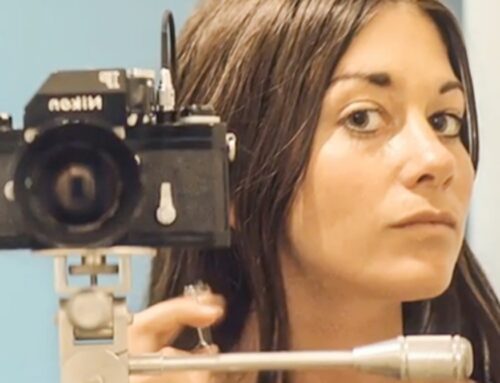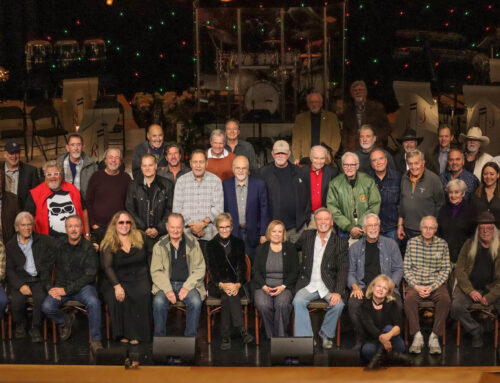You cannot discover new oceans unless you have the courage to lose sight of the shore.
As it does every year, this new year marks a new beginning. I plan to continue my Twitter series entitled #creativity, so if you don’t already, follow me there @bshrum, or on any of the social networking platforms. However, I wanted to announce the series here and say a few words on the topic.
There is a trend in modern thinking to discount the significance, and even the possibility, of original thought. The movement is similar to the quo
te from Proverbs that there is “nothing new under the sun.” In other words, people are basically saying that an original idea is not possible, since every idea has already been expressed. This idea stems from the corresponding line of thinking that all ideas should be free. If this is true, there is not room for creativity, thought, inspiration, invention and innovation. All such “new” ideas would, in fact, be in the zeitgeist already.
Obviously, I do not agree with this line of thought. I come from a family of creative thinkers and I know from experience that new thought can, and is, generated every day. Our own experience in society falsifies the notion that there is nothing new under the sun, as we see in American history a lineage of great, original thinkers and invention. The light bulb, the automobile, electricity, the assembly line, the telephone etc. etc. All of these innovations are based on sparks of creativity. As American author Jonah Lehrer says,
“Creativity is a spark. It can be excruciating when we’re rubbing two rocks together and getting nothing. And it can be intensely satisfying when the flame catches and a new idea sweeps around the world.”
This is a wonderful insight. It is most certainly difficult in most instances to spontaneously generate truly unique thoughts. There is a propensity in the Nashville songwriting community to attempt to “force” this spark by scheduling co-writing sessions with other like-minded songwriters. This sometime results in frequent complaints about the songs being produced and performed in Nashville, i.e., that they are “all alike.” What people are really saying is that many of the songs are not creative. So, while these co-writing sessions may occasionally produce some innovative ideas, it seems that more frequently the practice is a lot like “rubbing two rocks together” in an effort to create the spark, but actually producing a lot of similar songs.
So, the question is can a person actually do anything to foster the generation of new and creative ideas, or are well all destined to the world where there is “nothing new under the sun”? Research shows that there are certain practices which help the spontaneous generation of fresh and new ideas. I’ll share three of them:
The Inner Child
When we think of creativity, we can’t help but reminisce about the days when we were children. A child has not inhibitions or preconceived notions. To a young child, every experience is new and original. The child cannot help but want to paint, sculpt, draw, write, read and see the world in a new light.
It is that “inner child” that can help the creator generate new ideas. Think about this: why is that many great artists, no matter what the craft, often turn to substance use and abuse in times when they want to create? The reason is, of course, that using a mind altering vehicle often lowers inhibitions and “lowers our guard.” No, I’m not saying go out and tie on one in order to create your next great novel. What I am saying is that if you want to create new ideas, you have to see things from the perspective of a child. Stand on your head. Do somersaults. Perform some of your favorite childhood activities. Get in touch with you inner child and your creative juices will be stimulated.
Brainstorm
Another way to get in touch in with your inner child is to just begin writing down any idea that pops in your head, without leaving any room for judging or evaluating the validity of those ideas. This process often puts you in touch with your subconscious thoughts that are frequently suppressed by our conscious mind, where all of our rules and safeguards exist. Original thinkers often talk about thinking all the times. They have very fluent and free flowing thoughts, producing a stream of ideas that are different and sometimes unusual to the less creative observer. But this is how they derive the practical and innovative ideas. Often times, the creative thinker will spend a lot of time “incubating” ideas. As the old expression goes, they “put in their pipe and smoke it.” They percolate the idea in their head until suddenly there is a moment of “eureka” and the idea comes out fully developed. This is the moment that some people feel they are being touched by inspiration, or being guided by their “muse.” The jury may still be out on that, but in reality the key for the creator is knowing how to find these moments of illumination and capture them, regardless of from where you believe they come.
The expression “a writer writes” reflects this concept. If you look at the journals of any great thinker – Thomas Jefferson, Leonardo da Vinci, etc. – you will find scores of ideas that they did not develop. These great thinkers of the world captured their thoughts frequently. In our age of modernity, we have technologies that can assist in that tasks, but we must not lose sight of the important of writing things down as they occur. Keep a journal.
Craft
To the last point, some people believe that creativity is not a trait we inherit, but rather is a skill that is developed. That may just be something the non-creative people say, but the fact of the matter is that you CAN learn skills associated with the arts. A person can be taught to sculpt, paint, write songs or novel, etc. If Einstein had not known the “skills” of math, he would not have been able to capture his unique equation, E=mc2. His flash of insight may very well have faded into the moment, thereby changing the course of human history as we know it. My point is this: new, original and creative ideas must be captured and crafted in order to be innovative.
Once you have mastered the art of getting in touch with your inner child, brainstormed a flurry of ideas, and had your “eureka” moment of insight, you must have developed the skills necessary to capture it and put it down on paper. The art of “clothing,” or expressing the idea is a craft that must be honed and developed in order to achieve success, no matter what your area of creativity.
So, hopefully these musings of a lawyer on the subject of creativity inspire you to go out and create. Help me in my quest to stamp out this new trend in thinking that there are no new ideas. Go create some!







